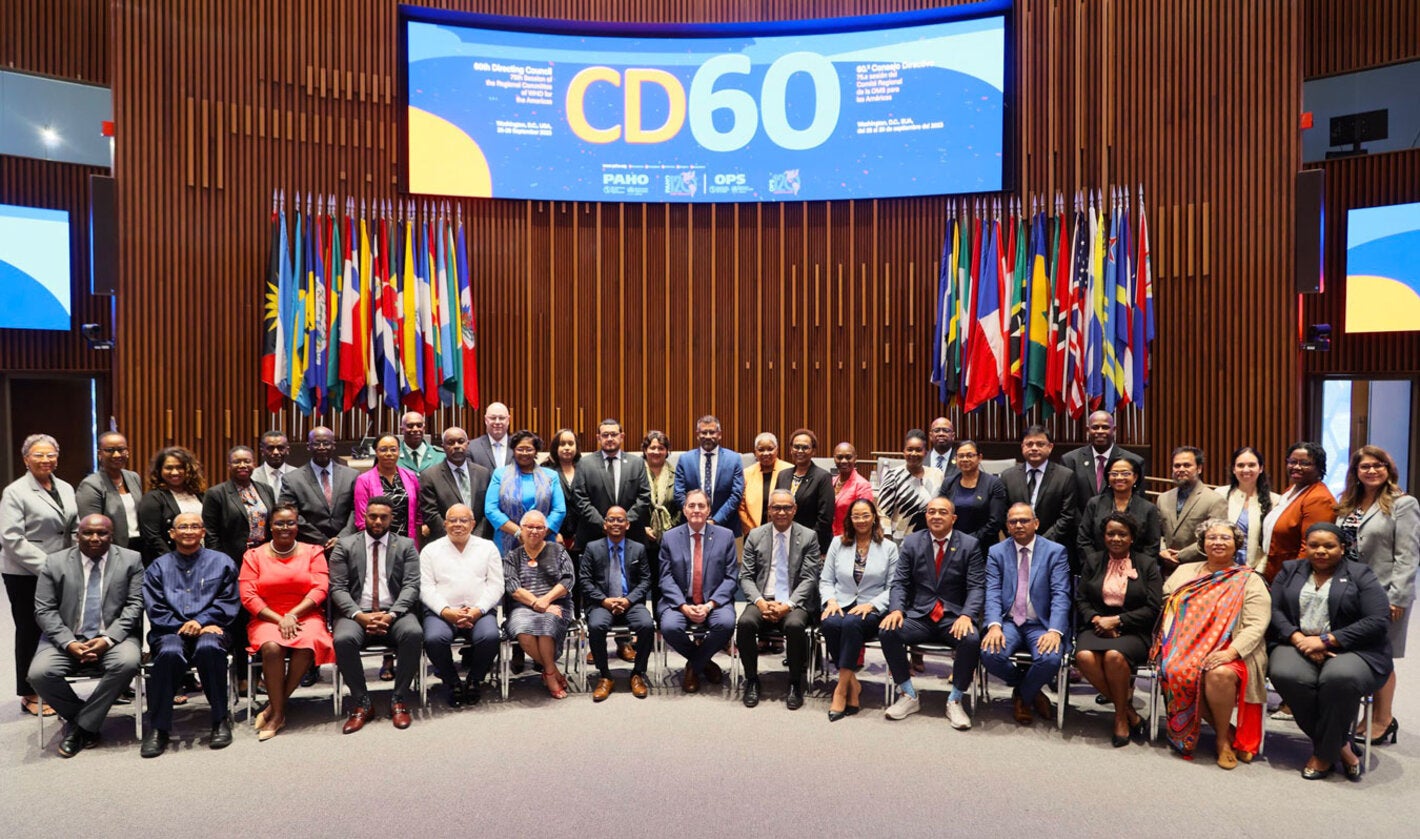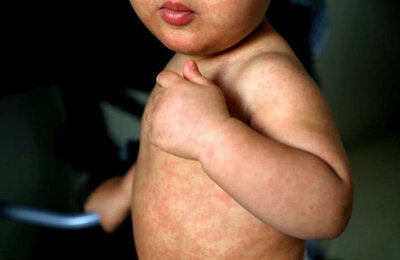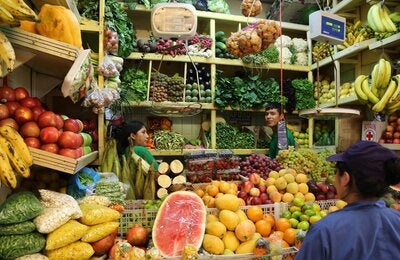
Bridgetown, Barbados, 24 September 2023 (PAHO/WHO) - Caribbean Ministers of Heath have been urged to utilize collective action to strengthen their healthcare systems, adopt sustainable practices that protect the environment and promote healthy living, and prioritize equity in healthcare delivery.
Pan American Health Organization (PAHO) Director, Dr Jarbas Barbosa, made this call at the opening of the 45th meeting of the Council for Human and Social Development (Health). He restated PAHO’s commitment to supporting Member States in recapturing the immunization gains of the past, confronting the emigration of health workers out of the Caribbean, reversing the growing epidemic of non-communicable diseases, and mitigating the health effects of the changing climate.
“The challenges we face are too great for any one nation to bear alone. The pandemic made this glaringly apparent: only through unity and collective action can we overcome the public health trials of our times. CARICOM was founded with this understanding,” he noted.
While highlighting that during the pandemic the Caribbean and other Small Island Developing States relied solely on imports for these essential health goods, he acknowledged the aspiration of some Caribbean countries to produce their own medicines and medical supplies.
The Director pledged PAHO’s support to facilitate access to affordable medicines, vaccines, and health technologies, in approaching partners and prioritizing technical cooperation on the regulatory aspects and demand planning. He noted that PAHO’s Revolving Funds could also be used to leverage regional production.
While turning his attention reversing the rates of NCDs, despite the “entrenched commercial and financial interests that hinder progress” he pledged the organization’s support for measures like front of package warning labels, the banning of trans fats and the creation of a smoke-free Caribbean.
“As we continue to advocate for the implementation of the Octagonal Warning labels, we are joined by the University of the West Indies, CARICOM, CARPHA, the Healthy Caribbean Coalition, UNICEF, the Food and Agriculture Organization, the Organization of Eastern Caribbean States, and many others, who believe that Caribbean people deserve to have the facts about what they are eating. We will persist, with our partners, to confront the main drivers of non-communicable diseases - tobacco use, unhealthy diets, alcohol use and lack of physical activity,” Dr Barbosa emphasized.
The Caribbean is poised to advance with the elimination of key communicable diseases and conditions. In 2023, eight Caribbean countries and territories, Anguilla, Antigua and Barbuda, Bermuda, Cayman Islands, Cuba, Dominica, Montserrat, and St. Kitts and Nevis, were revalidated as achieving the mother-to-child transmission of HIV and syphilis. Dr Barbosa shared that Belize had now joined this list of countries certified by WHO as having eliminated EMTCT earlier this year.
“I am pleased to announce that in partnership with the UN Office for South-South Cooperation, and through the India-UN Partnership Development Fund, PAHO has secured funds to support CARICOM Countries in their efforts to achieve and sustain the elimination of mother-to-child transmission (EMTCT Plus) of HIV, syphilis, and hepatitis B. In the coming weeks we will be conducting consultations to build the path forward together.
Dr Barbosa also used the opportunity to congratulate Belize on be being certified by the World Health Organization as having eliminated malaria in June.
Contact
Lisa Bayley - bayleylis@paho.org
PAHO/WHO Office of the Subregional Program Coordination (Caribbean)
The Pan American Health Organization (PAHO) works with the countries of the Americas to improve the health and quality of life of its population. Founded in 1902, it is the world’s oldest international public health agency. It serves as the Regional Office of WHO for the Americas and is the specialized health agency of the Inter-American system.
The PAHO Subregional Program is responsible for providing subregional technical cooperation and to strengthen PAHO’s engagement with the Caribbean Subregional integration mechanisms, the Caribbean Community (CARICOM) and its various bodies and organs; and to build synergistic partnerships with the subregional institutions such as the Caribbean Public Health Agency (CARPHA) and the University of the West Indies (UWI), among others. PAHO’s subregional technical cooperation specifically focuses on public health issues which would benefit from economies of scale and for which agreement on proposed collective responses and actions would produce a far greater impact rather than individual country responses. The Subregional Program also plays a role in coordinating among the different PAHO country offices.



